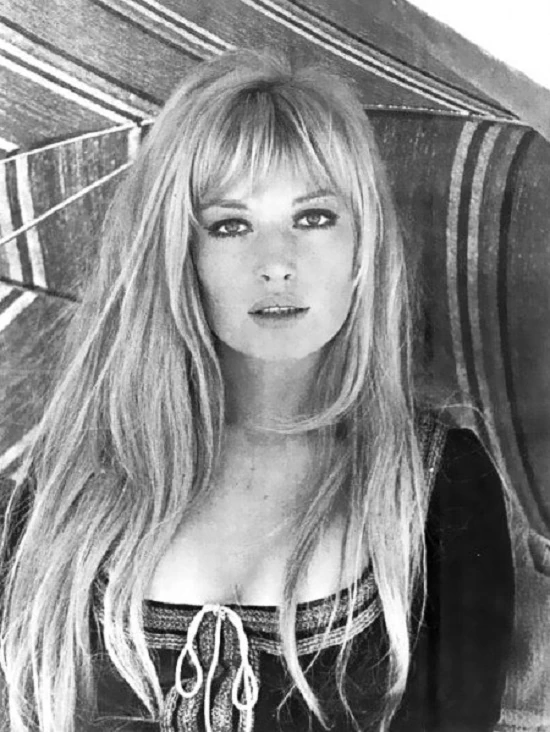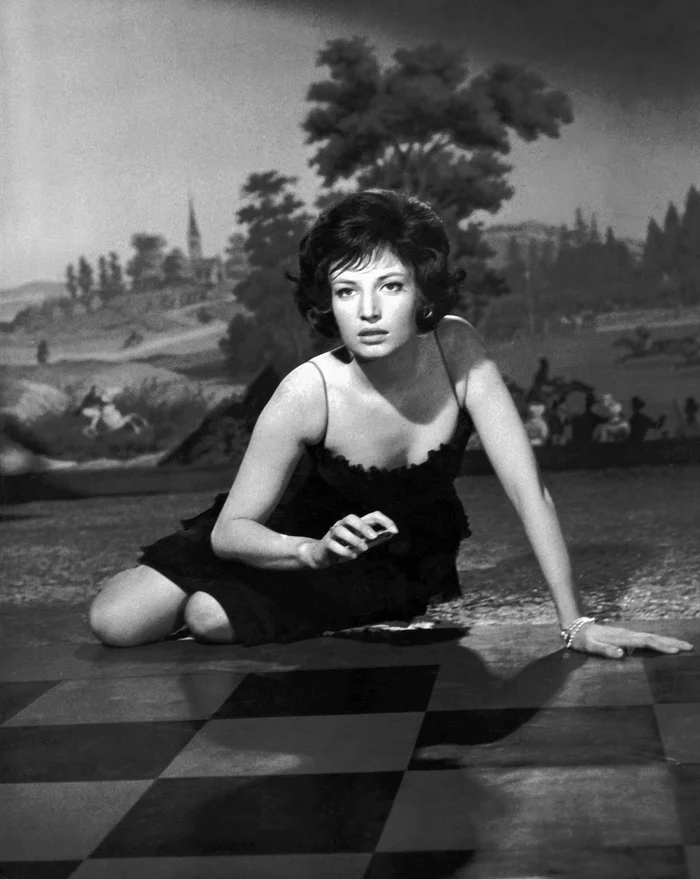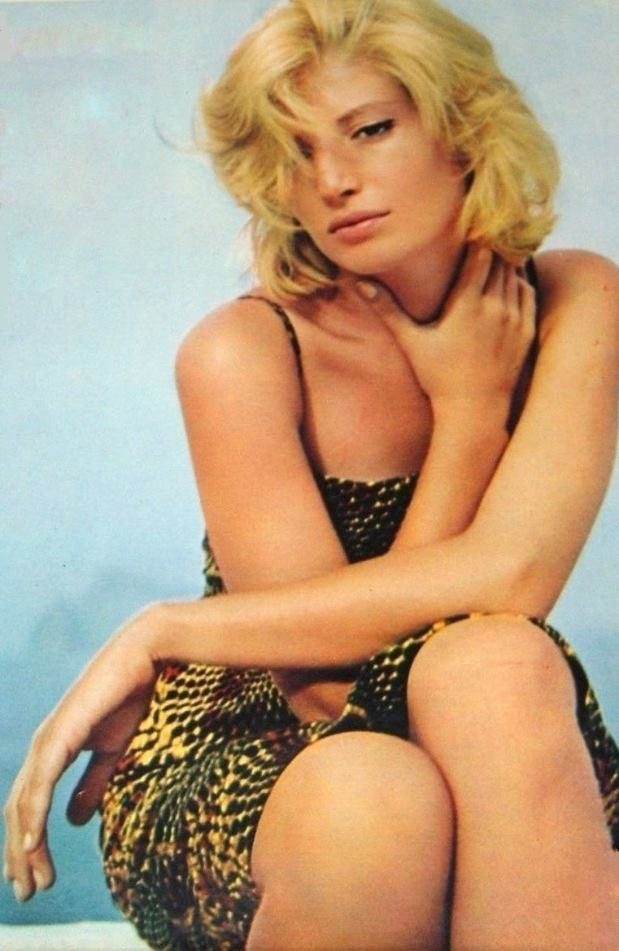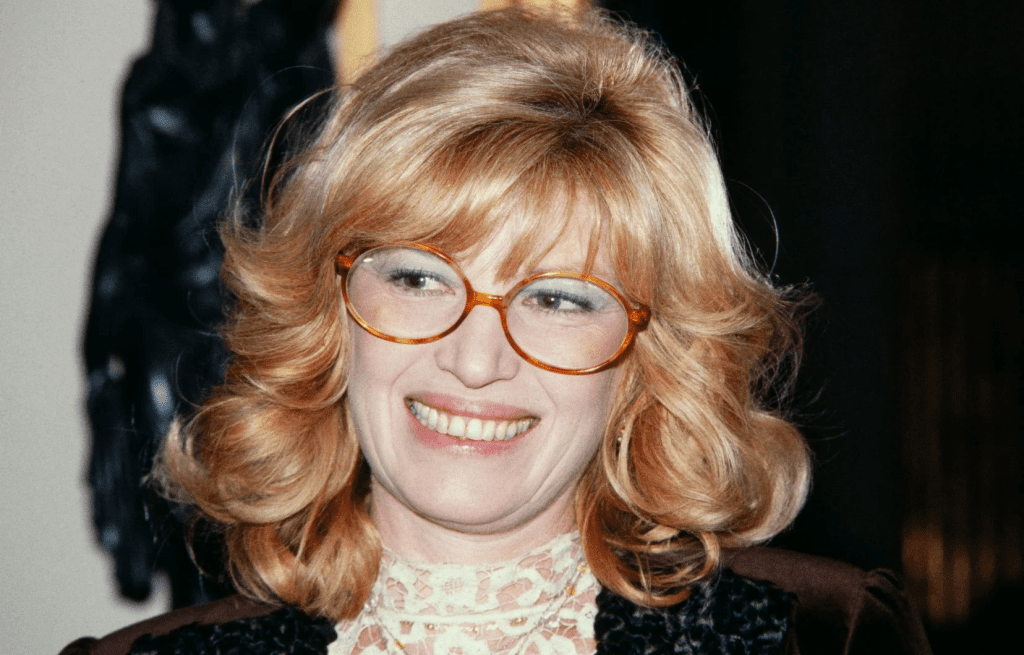Monica Vitti, a name synonymous with elegance, mystery, and extraordinary talent, remains an enduring figure in the history of cinema. Known for her spellbinding performances and ability to express profound emotions with minimal dialogue, she redefined acting during the golden age of Italian cinema. From her iconic collaborations with Michelangelo Antonioni to her ventures into comedy, Vitti’s legacy as a cinematic legend continues to captivate audiences worldwide.

A Humble Beginning: From Rome to the Spotlight
Monica Vitti, born Maria Luisa Ceciarelli on November 3, 1931, in Rome, emerged from a modest background. Raised in a working-class family, her childhood was far from glamorous. Vitti often wore her brothers’ hand-me-downs, fueling her dream to transform herself into someone extraordinary.
At just 14 years old, Monica’s first taste of the stage came when she played a 40-year-old woman in a school play. It was then she discovered her love for acting, a passion that would guide her future. After studying at the National Academy of Dramatic Arts in Rome, she began performing in small theater roles, refining her craft and developing the confidence to pursue cinema.
Vitti’s big break came unexpectedly. In 1956, she worked as a voice actress for Michelangelo Antonioni’s “The Cry”, dubbing another actress. This seemingly minor opportunity would alter the course of her life forever.
The Muse of Michelangelo Antonioni: A Revolutionary Collaboration
Monica Vitti’s career soared when she became the muse of renowned Italian director Michelangelo Antonioni. Their partnership revolutionized European art cinema and brought forth films that explored themes of alienation, loneliness, and existential angst.
Her breakthrough role came in “L’Avventura” (1960), the first film in Antonioni’s famous “alienation trilogy.” Playing Claudia, a woman caught in an enigmatic mystery, Vitti’s subtle expressions and ethereal presence became the focal point of the film. Antonioni deliberately moved away from traditional dialogue-heavy storytelling, relying on Vitti’s ability to convey deep emotions through silence.
The success of “L’Avventura” catapulted Vitti to international fame. Her performances in “La Notte” (1961) and “L’Eclisse” (1962) cemented her status as an icon of modern cinema. Vitti’s collaboration with Antonioni culminated in “The Red Desert” (1964), her first foray into color film. Portraying a woman on the verge of a nervous breakdown, she delivered a performance that was both haunting and deeply human.
Through Antonioni’s lens, Monica Vitti became the embodiment of existential beauty, redefining the role of women in cinema.

Breaking Boundaries: From Drama to Comedy
While Vitti became synonymous with intense and melancholic roles, her talent extended far beyond art-house cinema. By the late 1960s, she defied expectations by transitioning into comedy, a genre dominated by male actors at the time.
In “The Girl with the Pistol” (1968), Vitti showcased her wit, charm, and impeccable comedic timing. The film’s success proved her versatility as an actress and earned her newfound popularity among mainstream audiences. Her ability to seamlessly shift between dramatic and comedic roles set her apart as a well-rounded and dynamic performer.
Over the following decades, Vitti collaborated with prominent directors like Mario Monicelli and Dino Risi, starring in lighthearted films that highlighted her playful yet sophisticated persona.
A Style Icon: The Fashion and Elegance of Monica Vitti
Monica Vitti wasn’t just a cinematic legend—she was also a fashion icon. Her striking looks, including bold eye makeup, tousled blonde hair, and tailored yet feminine outfits, made her a trendsetter of the 1960s. Vitti epitomized the glamour of Italian cinema, becoming a muse for photographers, fashion designers, and women worldwide.
Her effortlessly chic aesthetic—equal parts confident and understated—reflected her larger-than-life presence on screen. Vitti’s fashion choices remain timeless, influencing style trends even today.

A Lasting Love: Life Beyond the Spotlight
While Vitti’s professional life shone brightly, her personal life was equally captivating. Her decade-long relationship with Antonioni shaped much of her early career, but their love affair ended quietly after they finished working together. Vitti, ever graceful, continued to speak fondly of their time together, describing it as a period of deep creative connection.
In the 1970s, Vitti found lasting love with Roberto Russo, a director and cinematographer 16 years her junior. The two shared a quiet, enduring relationship, and in 2000, they married. Russo remained by her side as Vitti gradually stepped away from the public eye.
The Final Curtain: Monica Vitti’s Farewell
After decades of enchanting audiences, Monica Vitti retreated from the limelight in the 1990s due to health issues. She battled Alzheimer’s disease for many years, choosing to live her final chapter in privacy with Roberto Russo.
On February 2, 2022, the world bid farewell to Monica Vitti as she passed away at the age of 90. Her death marked the end of an era, but her legacy as a trailblazer of Italian cinema remains eternal.

The Legacy of a Cinematic Icon
Monica Vitti’s impact on cinema is immeasurable. She was more than an actress—she was a symbol of artistic expression, an inspiration to generations of filmmakers and performers. Whether playing a melancholy muse in Antonioni’s masterpieces or delivering laughter in comedies, Vitti brought authenticity, beauty, and depth to every role.
Her contributions to film, fashion, and culture endure, reminding us of the transformative power of art. Vitti’s performances continue to resonate, offering audiences a glimpse into the soul of a woman who could say so much with so little.
Conclusion: Monica Vitti, A Legend Forever
Monica Vitti’s extraordinary talent, unique beauty, and timeless grace made her a legend of 1960s cinema and beyond. From her poignant collaborations with Michelangelo Antonioni to her comedic triumphs, she broke boundaries and left an indelible mark on the world of film.
Her journey—from humble beginnings in Rome to international stardom—serves as a testament to the power of passion, perseverance, and artistry. Though she is no longer with us, Monica Vitti’s legacy lives on in every performance, every frame, and every heart that she touched.
Her story is not just one of cinema—it is one of inspiration, reminding us that true legends are never forgotten.


